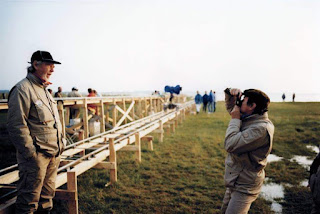Court (Chaitanya Tamhane, 2014)
Chaitanya Tamhane's Court isn't so much of a courtroom drama as the title suggests but more of a rigorous examination of our regressive laws hidden behind conservative ideologies that are hell-bent on maintaining the country's status quo without any reflection and any criticism is considered criminal.
The case of Narayan Kamble, the protagonist, exists solely because of the contempt the system holds against lower caste, and any voice of dissent from the said strata of society against the systemic abuse is charged under the archaic law of sedition, a law brought in by the colonial powers to censor and silence any expression of art that questions those in power and holds them accountable for their crimes. These were the acts of resistance that supported countrywide during our freedom struggle and are celebrated in our textbooks but unfortunately, now those same acts are being silenced because they might be a threat to the country, while the irony is lost on many, this only suggests that the freedom struggle for many of the Indians never ended. The law is archaic and a direct violation of one of the fundamental rights given to every citizen, Freedom of Expression, which unfortunately is largely conditional for dissenting voices but always unconditional, however violent they may be, for those in favor of the said conservative system.
The situation shown in the movie is a direct and unadulterated representation of the current political situation of the country where the system and the media very easily label any social reformer or activist as an extremist or the infamous "Urban Naxal" (whatever the fuck that means) and put into jail without a second thought, as made evidently clear in the movie when the police who arrested Narayan Kamble was spewing the same stream of thoughts propagated by the said media and him being part of the system will never reflect on it because it never really matters to him. The same actions are never taken against someone who will make very public threats if it is in favor of the system. Hypocrisy aside, a large number of the said system and the people who defend the said conservative structure never realize the kind of hatred they propagate under the guise of protecting their culture, and anyone questioning the said culture is taken as an offense. Just like how a harmless questioning of the regressive practices of a certain sect in the movie saw a reaction that may seem cartoonishly childish but anyone exposed to the right-wing Twitter will know that all it takes is one harmless joke to expose the insecurity of a couple of thousand-year-old religion.
When the narrative focuses on the daily lives of the people involved in the case, especially the contrast between the upper-middle-class life of the defendant lawyer and the lower-middle-class life of the public prosecutor. While the former's much progressive lifestyle reflects a minority of intellectual urban India, the latter's much more conservative middle-class lifestyle reveals an India that is the silent majority, the ones who would laugh at a blatantly jingoistic play brushing aside important issues under the guise of comedy and misplaced pride, the ones a majority of us are familiar with who is never overtly political but will always repeat the hatred spewed against the marginalized without any self-reflection. This is the silent majority that will always vote against progress because of the indoctrinated "values" but will always complain about the state of the country while never being self-aware.
I knew that hoping for an end result where Narayan Kamble would walk out a free man was futile when the presiding judge allowed his conservatism to not even hear a woman's case based on her attire. This hopelessness only deepened when he advocated for alternative medicines and holistic treatment to a relative's son, suffering from what could be a major mental illness, and dismissed therapy, which only showed that the judge was never rational, to begin with, and that his deeply conservative values will always cloud his judgment no matter what. Any dissenting voice against that will be seen as a threat to his very existence and hence will always be biased against the likes of Narayan Kamble. That's when I knew for certain that there was never any justice, to begin with, because the judiciary is inherently biased and always self-serving.
The court is a rare piece of gem that is so defyingly accurate about its portrayal of the country that the rose-tinted glasses start vanishing and the bleaker reality becomes more apparent with each scene. The more I ponder on the movie, the more revelation of layers of injustice are visible and I have barely scratched the surface of the movie. I think I need to revisit and mull over the movie more to unearth so many of the issues explored but for the time being this is as far as I can go. I'm sure I'll be rewatching this multiple times very soon.








Comments
Post a Comment